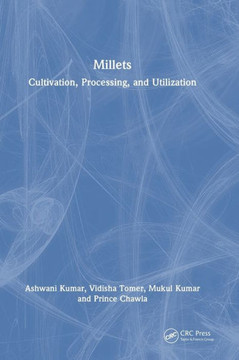
de Gruyter
Industrial Process Plants : Global Optimization of Utility Systems
Product Code:
9783111015316
ISBN13:
9783111015316
Condition:
New
$109.99
$94.76
Sale 14%
The purpose of this book is to remove the barriers to the Global Optimization of Plant Utility Systems by providing practical tools and techniques to deal with the unique challenges in the Global Optimization of Plant Utility Systems. The operating cost of a typical Plant Utility System of a typical Industrial Production Process Plant is enormous often in tens if not hundreds of millions of dollars per annum; with so much money at stake, one would expect that heroic optimization efforts would be made to reduce the operating cost, however such is usually not the case. One reason for this complacency is that Plant Utility Systems are usually "cost centers" in Process Plants and their operating cost is prorated amongst the various Production Units, so it suffers from what is at times referred to as "the tragedy of the commons". Another reason for this complacency is that the Plant Utility System structure is significantly different than that of other Production Units as for flexibility and safety reasons it has a large spare capacity to meet increased utility demand during startups, shutdowns, and emergencies. The existence of a spare equipment necessitates optimization of discrete decisions whereby traditional optimization techniques do not readily apply. Part of the problem is that the traditional engineering curriculum primarily emphasizes only one of the many optimization methods, called Non-Linear Programming (NLP). Although NLP can address large classes of optimization problems, it, unfortunately, has fairly stringent requirements that all describing relationships (or functions) be continuous and have continuous derivatives. Additionally, in general, NLP only guarantees a local but not the global optimum. Another optimization method is particularly well suited for modeling Plant Utility Systems is called Mixed Integer Linear Programming (MILP). And unlike NLP, MILP methods can guarantee global optimum, which is very reassuring. MILP, however, does impose linearity requirements but as discussed in this book there are techniques to overcome this limitation.
| Author: Ravi Nath |
| Publisher: De Gruyter |
| Publication Date: Feb 19, 2024 |
| Number of Pages: NA pages |
| Language: English |
| Binding: Paperback |
| ISBN-10: 3111015319 |
| ISBN-13: 9783111015316 |

Industrial Process Plants : Global Optimization of Utility Systems
$109.99
$94.76
Sale 14%
The purpose of this book is to remove the barriers to the Global Optimization of Plant Utility Systems by providing practical tools and techniques to deal with the unique challenges in the Global Optimization of Plant Utility Systems. The operating cost of a typical Plant Utility System of a typical Industrial Production Process Plant is enormous often in tens if not hundreds of millions of dollars per annum; with so much money at stake, one would expect that heroic optimization efforts would be made to reduce the operating cost, however such is usually not the case. One reason for this complacency is that Plant Utility Systems are usually "cost centers" in Process Plants and their operating cost is prorated amongst the various Production Units, so it suffers from what is at times referred to as "the tragedy of the commons". Another reason for this complacency is that the Plant Utility System structure is significantly different than that of other Production Units as for flexibility and safety reasons it has a large spare capacity to meet increased utility demand during startups, shutdowns, and emergencies. The existence of a spare equipment necessitates optimization of discrete decisions whereby traditional optimization techniques do not readily apply. Part of the problem is that the traditional engineering curriculum primarily emphasizes only one of the many optimization methods, called Non-Linear Programming (NLP). Although NLP can address large classes of optimization problems, it, unfortunately, has fairly stringent requirements that all describing relationships (or functions) be continuous and have continuous derivatives. Additionally, in general, NLP only guarantees a local but not the global optimum. Another optimization method is particularly well suited for modeling Plant Utility Systems is called Mixed Integer Linear Programming (MILP). And unlike NLP, MILP methods can guarantee global optimum, which is very reassuring. MILP, however, does impose linearity requirements but as discussed in this book there are techniques to overcome this limitation.
| Author: Ravi Nath |
| Publisher: De Gruyter |
| Publication Date: Feb 19, 2024 |
| Number of Pages: NA pages |
| Language: English |
| Binding: Paperback |
| ISBN-10: 3111015319 |
| ISBN-13: 9783111015316 |





